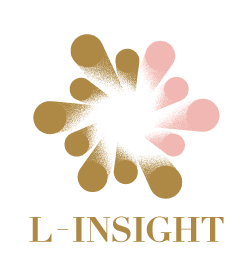The 3rd HeKKSaGOn x L-INSIGHT Program, “Dialogues for Future Research and Science with Early Career Researchers,” was held. (November 28-29, 2024)
L-INSIGHT held the 3rd HeKKSaGOn x L-INSIGHT Program, “Dialogues for Future Research and Science with Early Career Researchers,” at Heidelberg University from November 28th to 29th, 2024, with the participation of five L-INSIGHT fellows. This forum is a unique L-INSIGHT initiative that explores research themes capable of generating synergistic effects through cross-cultural interdisciplinary activities, thereby fostering a research community. This initiative, now in its fourth year, was held face-to-face for the first time.
The themes of the dialogues were developed by three fellow groups through workshops held before the forum in July: “The Universe and Biological Interface: A Quest for Our Origins and Evolution” (Yukako Katsura and Yuri Fujii‘s group), “Emerging Contaminants and Acceptable Health Risks in Water” (Satoshi Gogami and Midori Yasui‘s group), and “Integration of emerging technologies into a sustainable human society” (Kazuki Hayashi and Kenshi Fukumoto‘s group). Each dialogue group consisted of researchers from Kyoto University (L-INSIGHT fellows) and the three German institutions comprising HeKKSaGOn: Heidelberg University, Karlsruhe Institute of Technology, and Göttingen University.
https://www.l-insight.kyoto-u.ac.jp/event/hekksagon_20241129/
On the first day, November 28th, a reception was held at the Senate Hall of the Old University, which houses Alte Aula, a point of pride for Heidelberg University, the oldest university in Germany. Nicoline Dorn, who has long led international exchange at Heidelberg University , gave a welcoming and encouraging address, stating that academics can transcend national borders in any world situation, to which Associate Professor Asa Nakano responded by expressing gratitude for the ongoing friendship.
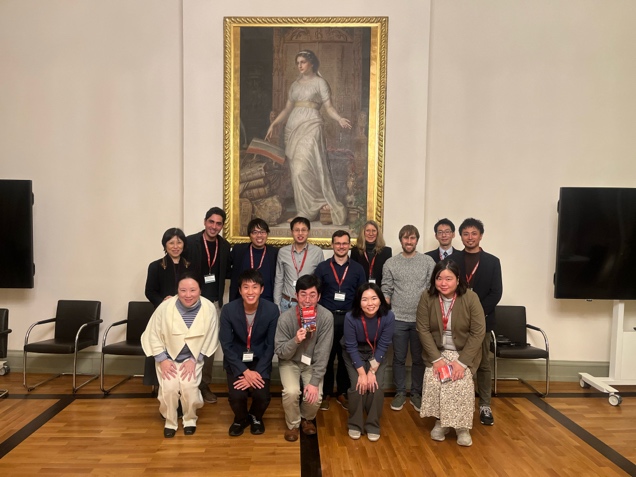
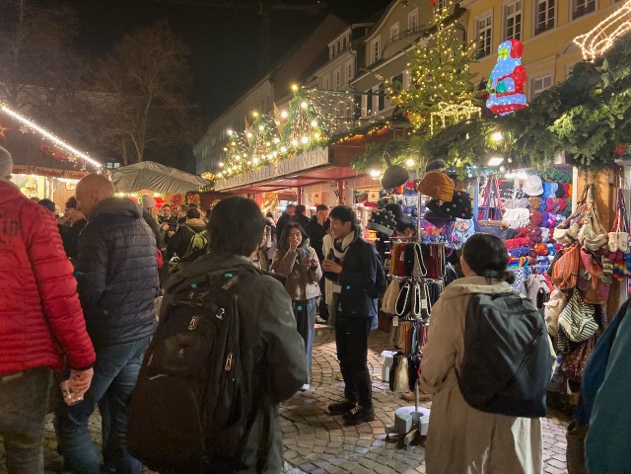
On the following day, November 29th, at the beginning of the forum, Vice-Rector Karin Schumacher of Heidelberg University expressed her expectations for this opportunity. Vice-Rector Schumacher emphasized the importance of open dialogue between different perspectives, symbolized by the opposing structure of the two balconies in Alte Aula, and stated that interdisciplinary efforts are essential for building a sustainable and equitable future. Subsequently, Vice-Rector Fuyuki Ishikawa of Kyoto University spoke about how science has developed through discussion and promised that Kyoto University will continue to support young, talented researchers who are eager to engage with the international academic community and expand their horizons.
In the first part of the forum, fellows representing the three groups presented the purpose of their themes, and then the participants divided into dialogue groups for discussions. They discussed constructive criticisms and potential contributions to the themes from the perspectives of different fields in Japan and Germany. In the second part, each group presented the results of their discussions. Each group clarified specific areas of expertise related to the interdisciplinary themes and refined the scope of their topics, thereby creating opportunities to invite new participants to the discussions.
The discussions were reviewed by two researchers from Japan and Germany. Professor Jun Suzuki of the Institute for Advanced Study at Kyoto University (iCeMS) spoke about the significance of actively experiencing the difficulty of conveying the values and importance of each specialized field, and his belief that the continuation of insights and friendships, both formal and informal, in discussions leads to scientific progress. Former President Bernhard Eitel of Heidelberg University, in his expectations for young researchers aiming to achieve challenging goals, stated that they should constantly ask themselves, “What do we need, and what do we not need?” and be aware of what constitutes a comprehensive approach.
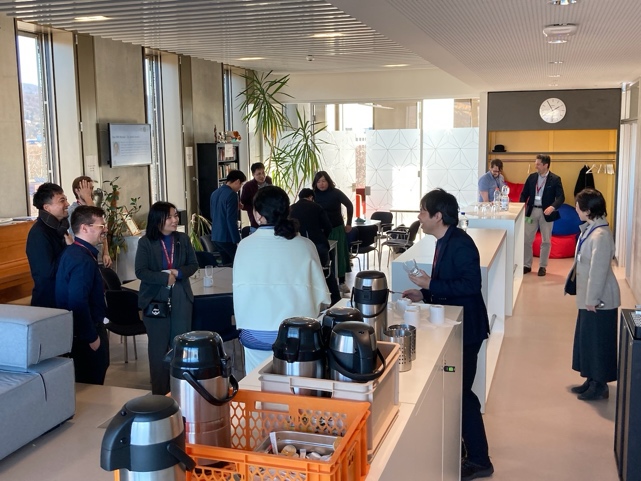
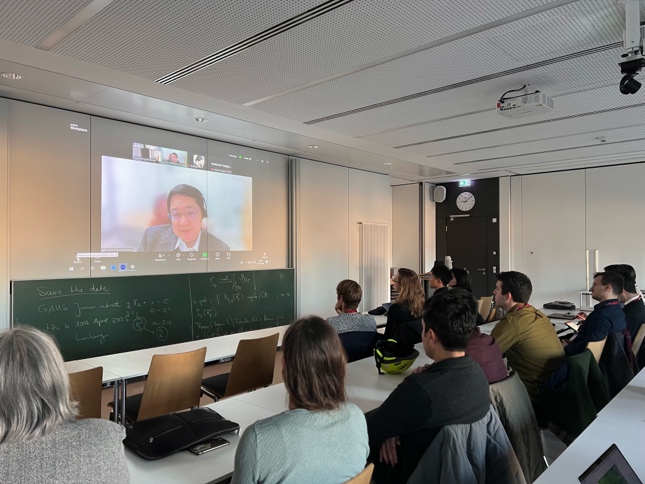
We would like to express our sincere gratitude to Chiyoko Kanno of the Kyoto University European Center, who made great efforts in preparing for this event, and to all the representatives of the three German universities in HeKKSaGOn. We also thank Professor Suzuki, who accompanied us as a researcher embodying an attitude of active engagement in scientific discussions.
